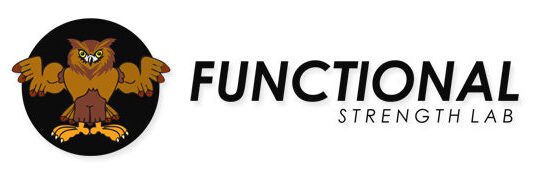In order to maintain your functional workouts, it is of utmost importance to continue fueling your body with the proper amount of protein. Suggestions for active athletes ranges anywhere from 0.5 to 1.5 full gram of protein for every pound of body weight – (Of course these numbers will vary wildly depending on your body composition (bodyfat %), your gender, and your specific workout regiment.) Regardless of your specific needs, it is a certainty that you will need to consume at least some protein in your diets. At Functional Strength Lab, we find it very important to plan your protein intake early in your week to ensure proper intake levels. Some tips that we recommend:
1. Find a protein supplement you like and stick with it. Whether it’s whey, casein, hemp, pea, etc. it is important to find a protein that you like the taste, and it works well with your body (i.e., doesn’t cause bloating, water retention, gas, etc.) Because we usually use protein powders only in a pinch (not enough time to cook), we want to make sure it’s not a chore to eat/drink. If protein powders have become a staple or large part of your diet, ensure that you eat plenty of cruciferous vegetables like cauliflower and broccoli, and supplement with branch chain amino acids (BCAA’s) – because different types of protein powders are deficient in various amino acids.
2. Cook your proteins in bulk and on the same day. Here at Functional Strength Lab, our protein cook day is Sunday’s. This way we always know when to have our shopping out of the way, and when to set aside time for our cooking. Our ideal proteins of choice for ease of cooking and packing later in the week are hard-boiled eggs, chicken breasts, lentils (in a crock pot), turkey brats, and salmon fillets (as long as you eat these earliest in the week.)
3. Find protein bars that are low in sugar/carbs. Be wary of protein bars that taste like candy bars, because they likely have as much or more sugar than if you simply ate the candy bar instead. If your body does not respond well to artificial sweeteners or sugar alcohols, you may wish to skip protein bars all together. Protein bars for us are an option of last resort — mostly because when we look at the ingredient list we can only pronounce half of it.
4. Tuna, Tuna, Tuna: I hope you like tuna, cause it’s about the perfect, super-food. You can transport it easily, it’s cheap, it’s cooked, and it’s extremely high in protein. We love it plain, but try it with mustard, bbq sauce, hot sauce, relish, etc. etc.
5. Walnuts and Almonds: Both of these nuts are delicious, easy to transport, and high in protein. The two nuts together also compliment each other well in terms of omega fatty acids. Where one is weak the other is strong…Omega 3-6-9.
